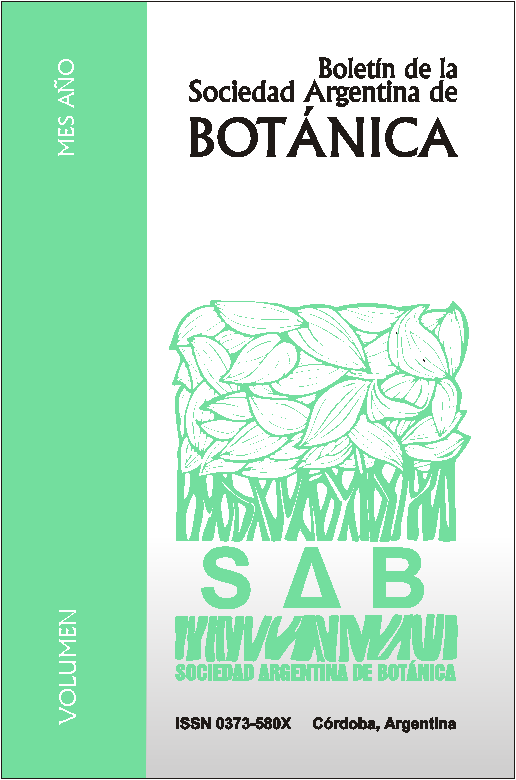A-linolenic acid, DSC, FTIR, rose hip seed oil, R. rubiginosa
DOI:
https://doi.org/10.31055/1851.2372.v51.n3.15388Keywords:
A-linolenic acid, DSC, FTIR, rose hip seed oil, R. rubiginosaAbstract
Rosa rubiginosa L. seed oil has been studied for its application in skin care products, but the chemical nature of seeds, pulp and even leaves, apart from that of oil, is also relevant with a view to the application of this weed for biodiesel production. All these vegetal materials were studied by infrared spectroscopy (FTIR) and differential scanning calorimetry (DSC) for characterisation purposes. FTIR bands at 3005, 2924, 1740, 1654 and 1456 cm-1 were used to estimate the iodine index, suitable for biofuels, and the oxidation stability degree. From the viewpoint of the thermal stability, both the seed oil (for which pyrolysis occurs at 462ºC), the raw seeds and the rosehip pulp (with decomposition temperatures of 373ºC and 333ºC, respectively) showed potential as a biomass feedstock for conversion into biofuels.
Downloads
Downloads
Published
How to Cite
Issue
Section
License
Provides immediate and free OPEN ACCESS to its content under the principle of making research freely available to the public, which fosters a greater exchange of global knowledge, allowing authors to maintain their copyright without restrictions.
Material published in Bol. Soc. Argent. Bot. is distributed under a Creative Commons Attribution-NonCommercial-ShareAlike 4.0 International license.









